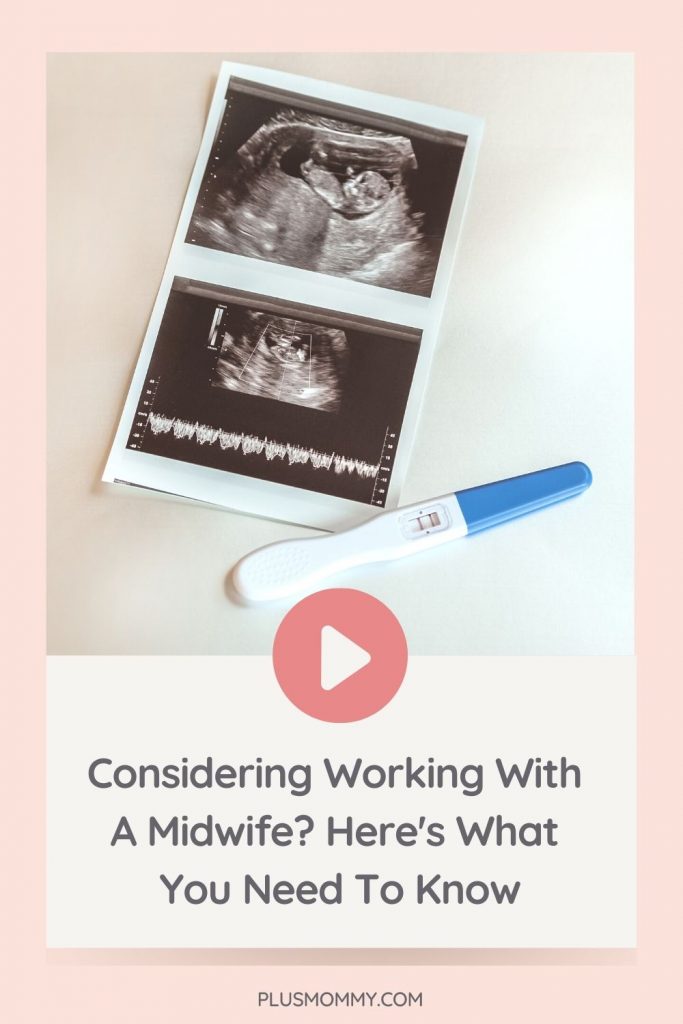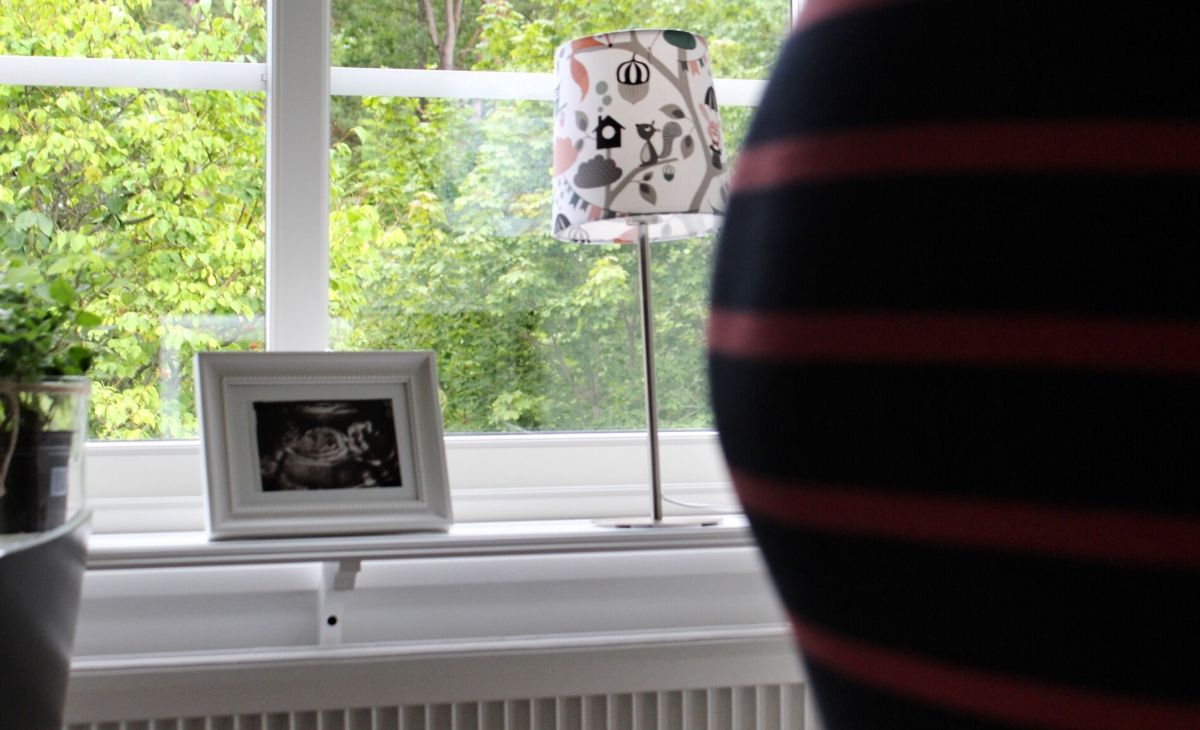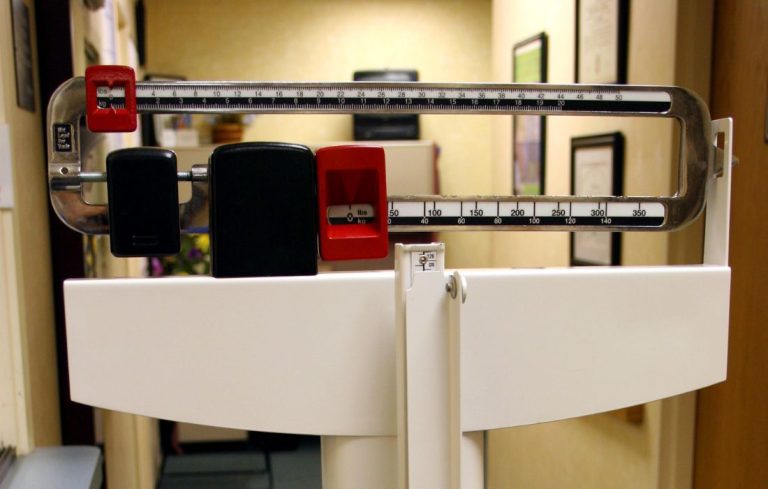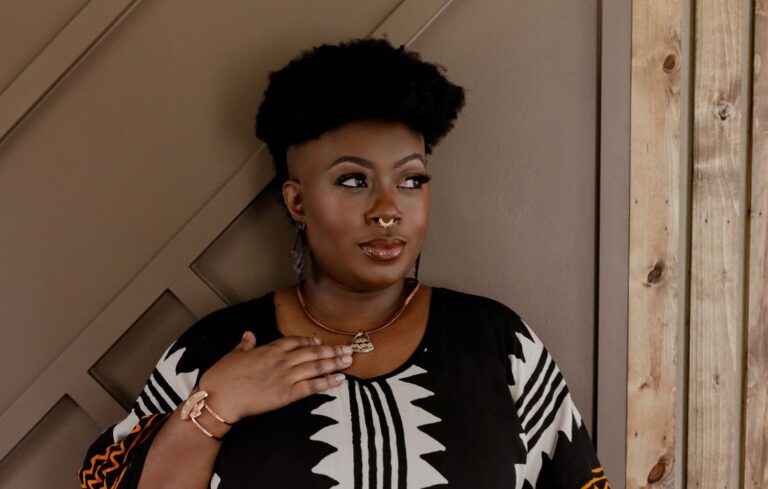Considering Working With A Midwife? Here’s What You Need To Know
Do midwives have BMI restrictions? Can a midwife care for me if I decide I want an epidural? If you’re considering working with a midwife, Certified Nurse Midwife and author Aubre Tompkins answers these questions and so much more about the midwifery model of care.

Working With A Midwife
As a size-friendly midwife, Aubre first joined the Plus Mommy Podcast during episode 39 Q&A With A Fat-Friendly Midwife. She returns to answer questions about the midwifery model of care and to help dispel myths by responding to quotes pulled from her new book, Midwifery for Expectant Parents: A Modern Guide to Choosing the Birth That’s Right for You.
Aubre poured over a decade’s worth of knowledge and experience into this excelled book. She shares the history of midwifery and walks parents through how midwives support people throughout pregnancy, birth, and postpartum – from the hospital setting to birth centers, and home birth! After reading this book, people will feel empowered to choose if the midwifery model of care is the right fit for their maternity care.
Before we got started, Aubre and I answered a question people often submit to Plus Size Birth.
Do midwives have BMI restrictions?
Just because you have a high BMI does not mean you’re automatically going to have a high-risk pregnancy. People of all sizes can access the midwifery model of care.
With that said, individual midwives, birth centers, and facilities may have BMI restrictions.
Be sure to do some research when looking to connect with a size-friendly midwife for a hospital, home, or birth center birth.
As Aubre shares, “Just because someone is a certain type of midwife doesn’t mean that they’re going to be the right person or the right provider for you. And so that’s really important. There are fantastic physicians, and there are awful physicians. Yes, there are fantastic nurse-midwives and awful nurse-midwives. So you have to delve a little bit deeper into the provider to find the one that’s really for you, you can’t just go by the letters after their name.”
Related: A Promising Look At The Evidence Behind Plus Size Pregnancy Risks
Below you’ll see quotes from Aubre’s book and her condensed responses. To hear all the wisdom she has to share, be sure to listen to episode 105 of the Plus Mommy Podcast available via all podcast apps and linked below.

How is the midwifery model of care different from the obstetrical model?
“No one is more of an expert on your individual body than you. This focus on centering the pregnant person, coupled with the understanding of modern science and medicine, is one factor that sets midwifery apart from other birthing practices currently in use.”
Midwifery is a more holistic view of pregnancy and labor and birth, and all of the cycles actually that we experience in life.
And it’s much more focused on health and the underlying innate knowledge that we each have about our lived experience.
My seven years of school does not trump your however many years of life on the planet. That’s really important. And when we don’t honor that about ourselves as humans and our bodies, then we’re taking all of our power away.
It seems like a subtle shift, but it’s very powerful, and it’s very impactful.
Can you receive pain management while working with a midwife?
“Pain management is an important factor to consider when planning your birth. There is no right or wrong choice here; birth is not a contest, and it’s hard work, no matter how it happens. It’s critical to be honest about what you want and plan accordingly.”
My job as a midwife is to just help support you, and empower you to make the decisions that are going to give you the best experience. And if that means an epidural in the hospital, then that’s great.
Let’s talk about it. Let’s go through it. And let’s make that happen for you.
How does getting an epidural impact your blood pressure?
I highlighted this quote in Aubre’s book about epidurals not to scare people, but to address a possible side effect that doesn’t get talked about very often.
“Epidurals can decrease the laboring person’s blood pressure, which can negatively affect the baby’s heart rate and pattern. When this happens, it can usually be reversed by medication, but sometimes it can’t.”
The medications that they use for an epidural are very powerful, and it’s very strong cocktail.
One of the effects of an epidural is a process called vasodilator where your blood vessels open up, dilate, and get a little bit bigger.
That can cause a decrease in your blood pressure because the vessels get looser, so your blood pressure goes down a little bit. Most of the time, if it happens, it’s very transient. It doesn’t happen for that long.
If you have a healthy pregnancy and a healthy baby, then it’s not going to cause a big problem.
The concern is if the placenta loses some pressure behind it and some blood flow to it, then then it can cause a more significant problem. You might have to do bigger interventions to take care of it. But it’s pretty common for the blood pressure to drop.
When we’re talking about any intervention, we just need to be open and honest about true informed consent and shared decision making.
Related: A Labor And Delivery Nurse Talks About Failing Plus Size Moms
How late can you switch care from an OB-GYN to a midwife?
“There’s no right or wrong time to start midwifery care, but in general, the sooner the better—this will give you the time to develop a good relationship with your midwife.”
Absolutely! You can switch care at any point in time.
Can midwives provide all the same testing you can get with an OB-GYN?
“A midwife offers all the same testing and screening that a doctor would, including blood tests and ultrasounds. But you’ll also notice some distinct differences from physician-based care. Midwives focus on one-on-one education with families and typically spend more face-to-face time with their clients in order to explain development and answer questions. They also usually offer diet and exercise counseling and have a strong focus on the mental health of their clients.”
Yes! And one of the hallmarks of the midwifery model is the informed consent and shared decision-making process, which takes time. So those aren’t conversations that you can have in two minutes, right?
Midwifery is really building a relationship with a provider who gets to know you, and you get to know them.
And then you can build that level of trust, which is really important. That takes time and commitment on the side of the provider.
Related: Plus Size Pregnancy Q&A
I have to be really up on my statistics and my data, and my evidence, and I have to be able to distill it down into a way that’s easily understandable. For people who aren’t familiar with medical jargon, and all of that stuff takes time and is a really important part of the process.
When considering working with a midwife, how is labor approached differently than the OB-GYN model of care that tends to be more medicalized?
“Labor is an example of our bodies working properly—though the common media portrayal of labor as a medical procedure in a hospital makes many people believe otherwise.”
I think it’s an acknowledgment that when you are giving birth, your body is working exactly how it was designed to work.
I often hear this argument of, well, when I get a cavity, I use novocaine or whatever, or, if I break my leg, it really hurts or if I pass a kidney stone, it’s awful. And I always just want to say, right, those aren’t normal.
It’s not normal to have someone put a drill in your tooth or for a bone to break.
Related: What Is Physiologic Birth And How To Experience It?
So, when you experience those sensations and labor, they’re intense. Don’t get me wrong, I’m not downplaying it. But if you can accept the fact that it’s supposed to happen, and it’s a process that’s working, as opposed to an abnormality or something being wrong, then that really can kind of help shift your perceptions of how you can deal and cope and manage the labor process.
Will I poop while giving birth?
“As a midwife, I actually get happy when a client starts passing stool, because it means they’re effectively pushing and will soon have a baby!”
While not everyone poops while giving birth, it’s pretty common. Rest assured that nobody can make poop disappear faster than a labor and delivery nurse!
Honestly, and truly, when people start pooping in labor, I get excited. It is one of the signs that tells me that we’re getting ready to have a baby.
It is a good thing. Embrace the poop!
Will there be a lot of people in the room when I give birth?
“If you’re in a hospital, there will be several other people in the room, some to help the midwife care for you and some to care for the baby. These details should be explained to you well before the birth so you know what to expect.”
When you give birth in a hospital, you can have a lot of privacy and intimacy for most of the process. Usually, it can just be your nurse and your provider that in the room for the most part and your support team.
When you’re in the second stage and pushing, and particularly when you’re crowning, then all of a sudden, in many hospitals, there is a team of people that come in.
Exactly how many people is going to vary a little bit depending on your institution.
For birth centers and home birth, there are far fewer people.
How can I set myself up for success with postpartum?
“Traditionally, when a family had just welcomed a new baby, folks helped with cooking, housework, and yardwork, without expecting to be entertained. We need to reclaim this time and phase in our lives by allowing this help.”
I always tell people that your baby is precious. And anyone who expects to see your baby, that is a right that has to be earned.
If someone wants to come to visit you and see your baby, that’s cool. They need to bring a casserole, they need to take your dog for a walk, they need to run the vacuum cleaner and load the dishwasher. And then they can have the honor of some time with your baby. And I think that that’s really important too.
You shouldn’t have to be the hostess after your birth and that that’s critical.
Related: Dr. Kat Talks About Mental Wellness During Pregnancy And Postpartum
My biggest thing I want people to know is to be empowered to choose a provider that makes them feel safe and cared for and heard. And whoever that is for you, that’s what I want you to find.
I think you have a good chance of finding that with a midwife.
And what I would want families to take away from this is that you have choices you are in charge of your body, and what is done to it, and that you deserve and have the right to have a provider who, as I said, treats you with compassion, listens to you, and that you can truly be heard and felt respected and every human deserves that from a healthcare provider.
During my conversation with Aubre, we also spent time talking about the difference in midwives who work in the hospital and what she calls Community Birth (birth center and home birth). Listen in to hear more about this and so much more if you’re considering working with a midwife.
Recording & Show Notes: Plus Mommy Podcast Episode 105
Simple and sweet, I am a midwife. If you want to get technical, I happen to be a Certified Nurse Midwife (CNM). I have been on this path for quite some time, since 1999 to be exact. It was a long, round about trip but I wouldn’t trade it for anything. I started out as a Mother, then a Nurse and now a Midwife. (In reality I am always all three.) As a nurse, I worked in a busy urban teaching hospital. I staffed the Postpartum floor, the Well Baby Nursery, the High Risk Antepartum floor, the Neonatal Intensive Care Unit or NICU and the Labor & Delivery Unit. Also, during this time, I worked as a nurse in a free standing birth center. Eventually, I earned my midwifery degree and was blessed to be hired as a midwife at the same birth center, where I served my community for many years. Recently, I have developed and opened a new birth center and am proud to serve families in my new home. I am a Faculty member with the American Association of Birth Centers and travel the country to teach a workshop on how to start birth centers.
Related: Australian Student Midwife Talks About Anti-Fat Bias In Midwifery Care
I believe in physiologic birth and that birth must be respected. I believe that a healthy person, when supported and nurtured, will likely remain healthy throughout the pregnancy, labor and birth. And that this pregnant person will grow a healthy baby that is designed to navigate the birth process. For these families, health is my assumption. I will closely watch and monitor their progress and intervene when necessary. I’m a partner with my clients, on equal footing, but I also have years of training and knowledge that I can and will utilize to help educate and guide them. I believe that Peace on Earth Truly Does Begin With Birth.
Connect with Aubre Tompkins via her website, A Midwife On The Path, Facebook, and Instagram. Be sure to check out her new book, Midwifery for Expectant Parents.
Thank You To Our Sponsor:
This episode is also brought to you by Plus Size Birth! Use coupon code PlusMommy to receive 20% off the My Plus Size Pregnancy Guide. This guide covers everything you could want to know about having a plus size pregnancy.








